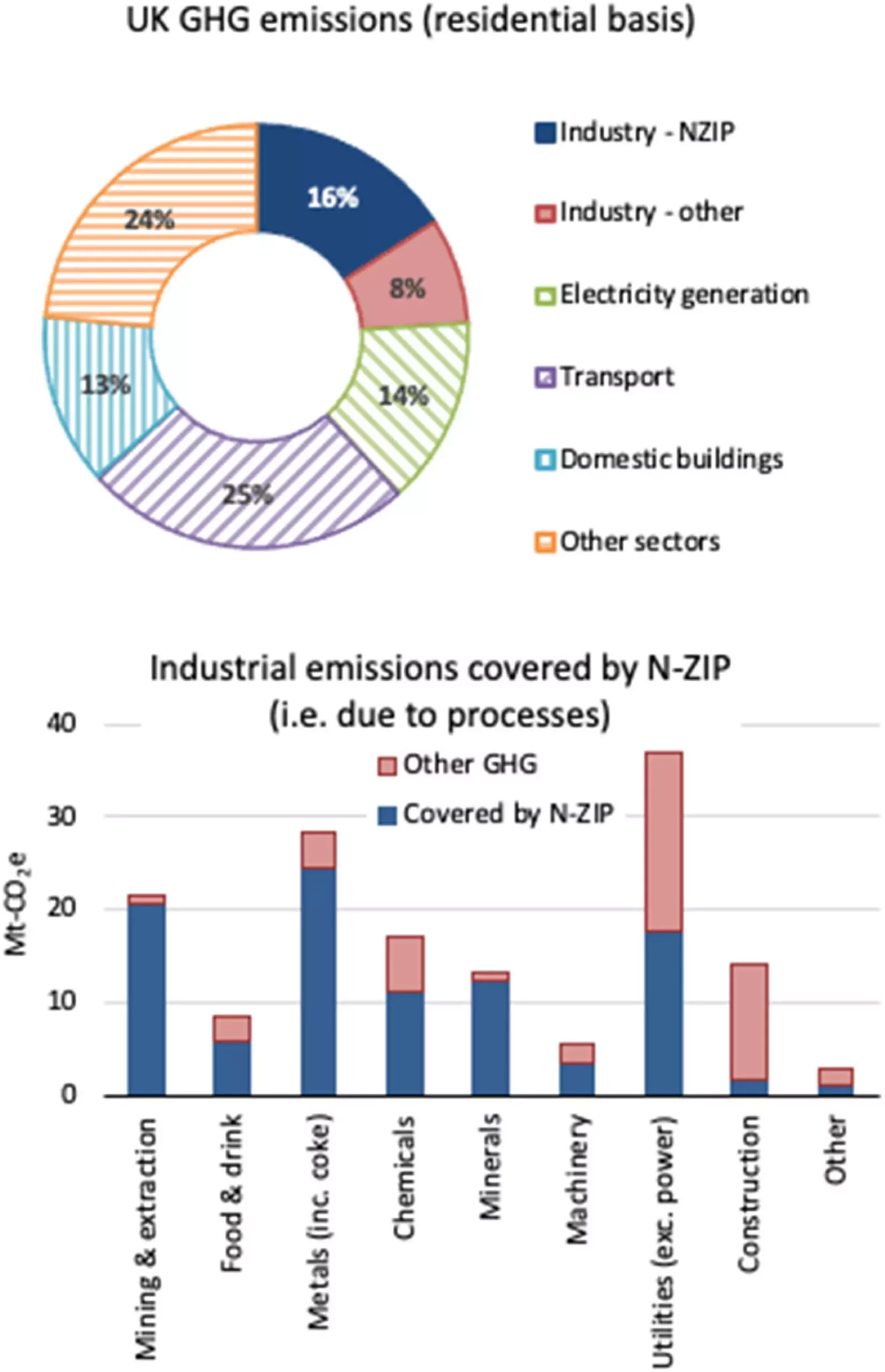A recent study conducted by the University of Bath’s Institute for Sustainability has shed light on the feasibility of decarbonizing industrial processes in the U.K. to achieve the goal of Net Zero emissions. Contrary to popular belief, the research suggests that this transition could be achieved with minimal price increases of just 0.8%. By investigating various scenarios, the study explores the distribution of costs associated with decarbonization and considers different approaches to ensure an equitable sharing of the financial burden.
To understand the potential costs involved, the researchers analyzed a model provided by the U.K.’s Climate Change Committee, which encompassed all industrial processes in the country. They considered a range of technology options such as electrification, fuel switching to hydrogen, and carbon capture and storage (CCS). The study then delved into three possibilities for sharing the costs: the industries bearing them, consumers paying higher prices, or the companies benefiting from the supply chain associated with these activities contributing to the costs.
The study suggests that many industrial sectors, including manufacturing, construction, food and drink, and mining, could absorb the costs of decarbonization without a significant impact on their profits. The study found that these sectors could experience a relatively modest reduction in their gross operating surplus of 2% to 7% by 2050. However, certain sectors such as metal production, cement and minerals, and waste treatment may face more significant challenges. Nevertheless, even in these cases, the effect on profits would be less than the fluctuations experienced over the last decade, amounting to approximately 15% to 46% of profits.
Alternatively, the study explored the option of passing on the cost increases to consumers. Surprisingly, the average final price increases were projected to be less than 0.8% by 2050. This finding dispels concerns that decarbonization efforts would lead to substantial price hikes for consumers. Furthermore, the study indicated that the burden of price increases would be shared relatively evenly across different income groups and spending patterns. While some product groups, such as housing, would experience negligible increases of less than 0.5%, the prices of household goods would rise by more than 3%.
The study acknowledged that for many products, the impact of price increases on international competitiveness would be negligible. However, for bulk materials like metals, cement, ceramics, plastics, and bulk chemicals, protection may be necessary to avoid unfair competition from countries that do not face decarbonization costs. The European Union’s new Carbon Border Adjustment Mechanism (CBAM) is cited as an example of such protectionist measures that could be implemented.
The research highlights the importance of capitalizing on opportunities to improve energy- and resource-efficiency alongside the adoption of low-carbon technologies. By incorporating these improvements into investment cycles, the costs of decarbonization can be further mitigated. The study emphasizes that companies should not overlook the potential for efficiency gains during the transition to a decarbonized industrial sector.
It is essential to note that the study focuses solely on the costs associated with decarbonizing industrial processes and does not account for other potential expenses that the industry may incur, such as changes in transportation or electricity costs. Nevertheless, the findings contribute to the body of evidence supporting the feasibility of decarbonization without imposing prohibitive price increases on consumers. The publication of this study in the journal Energy Policy is expected to influence industrial decarbonization policies and shape the support provided to the sector by policymakers.
The University of Bath’s research presents a promising outlook for decarbonizing U.K. industrial processes. The study demonstrates that achieving Net Zero emissions is attainable with price increases of just 0.8%. By carefully distributing the costs of decarbonization and considering the role of industries, consumers, and international competitiveness, the transition can be made equitable and economically feasible. As the world strives to combat climate change, findings such as these are encouraging and provide valuable guidance for policymakers and businesses alike.


Leave a Reply